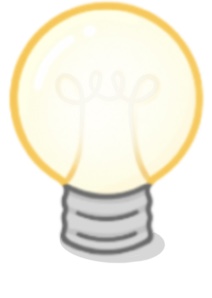Efficiency (Energy & Power)
This lesson covers:
1What we mean by the term 'efficiency'
2How to calculate efficiency using two different equations
3The idea that no device is 100% efficient
Remember that the law of conservation of energy tells us that energy cannot be created or destroyed.
It can only be transferred usefully to other objects or forms, or be dissipated to the surroundings as waste energy.
Which of the following are correct formulas for energy efficiency?
(Select all that apply)
|
Efficiency is usually given as a decimal, such as 0.6.
How would we convert this to percentage efficiency?
(In exams you can usually use either form, unless they ask for one specifically).
Multiply by 100
Divide by 100
Square it
|
When provided with an input of 240 W, a set of Christmas lights emit 36 W of light radiation.
What is the percentage efficiency of the Christmas lights?
5 %
15 %
10 %
|

The government has recommended that the sale of filament lamps should be banned.
Suggest why this is.
Filament lamps are inefficient
Filament lamps look bad
It would give shops new products to sell
|

How could a bicycle be made more efficient?
Add some oil to the chain
Add some lights
Cycle faster
|
During the course of a day, an electric motor usefully transfers 1600 kJ. The energy supplied to the electric motor is 4000 kJ
What is the efficiency of the motor?
2.5
0.6
0.4
2400
|
The efficiency of a 25 W energy-saving lamp is 0.6.
How much energy does it waste each second?
10 J
150 J
15 J
25 J
|
No device is 100% efficient.
A speaker has an input power of 30 W, but only 10 W is converted to sound energy.
Suggest what happens to the other 20 W.
It is lost as thermal energy
It is lost as light energy
Is it used for electricity
|